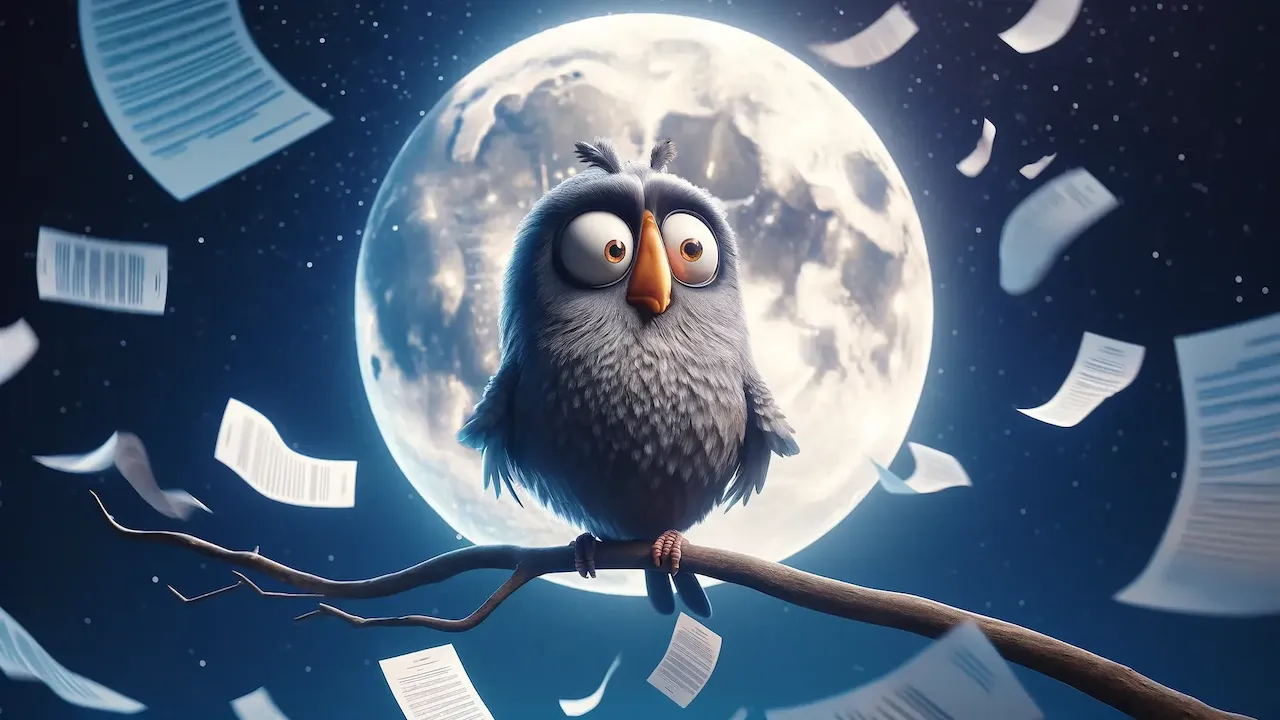It’s not much of a secret: When NFTs broke out as a coherent asset class in 2021, their value proposition was, chiefly, rampant speculation. Since then, NFT projects have spent It has never been resolved, however, what exactly IP means in such a context, nor to what extent NFT projects can bestow IP rights onto their holders. Those unanswered questions bubbled back to the surface this week, when Yuga Labs—the There was just one snag with the plan: In 2022, Moonbirds’ original creators filed the collection under Creative Commons 0 (CC0), an extremely firm legal tool that relinquished any copyright claims to Moonbirds NFT artwork, and released the pixelated owl characters into the public domain. Moonbirds’ official statement on the matter, posted Monday, came across like an attempt to sidestep this reality. “Twitter users immediately pushed back. Several, including copyright attorney Alfred Steiner, argued the company’s position was legally invalid—Moonbirds were in the public domain now, and nothing could put that toothpaste back in the tube. I don’t see any way to interpret this other than as saying that something the public WAS freely able to do with @moonbirds artwork will NOW require owning a Moonbird, which of course is false.— Alfred Steiner (@alfredsteiner) April 30, 2024It wasn’t long before Yuga appeared to adjust its position. Within hours of the initial announcement, the company’s co-founder and CEO, Greg “Garga” Solano, Once something is put into the public domain it can’t be removed, and CC0 designations are irrevocable. @creativecommons have been very clear about this: https://t.co/aXtaYA7jaY— Sean Bonner Ⓥ (@seanbonner) April 29, 2024Those commercial rights, Solano said, would be akin to those enjoyed by Bored Ape Yacht Club NFT holders. For years, Yuga has allowed BAYC holders to create and sell Bored Ape-themed endeavors like So what’s the truth? Can anyone freely riff on the Moonbirds copyright until the end of time? Or does Yuga have the power to control who creates Moonbirds-themed goods?That’s correct – new updated artwork, which will have commercial rights similar to BAYC/MAYC etc. Old art doesn’t go away. Think of it like how DeGods or others have provided new versions along the way.— Garga.eth (Greg Solano) (@CryptoGarga) April 29, 2024According to Brian Frye, a law professor at the University of Kentucky specializing in NFTs and intellectual property, both statements can be true at the same time—a fact that exposes key issues with how IP is currently understood and discussed within crypto. For Frye, it all comes down to the crucial difference between copyright and trademark. When Yuga says that Bored Ape or Moonbirds NFT holders have special commercial rights, the company is implying that those source from an individual NFT’s copyright.Copyrights protect the content of a work, like the plot of a book or the unique characteristics of a painting. Yuga would therefore maintain that each individual Bored Ape or Moonbird possesses its own copyright, which a holder can wield to their own benefit.But Frye—and other legal scholars including That distinction is a double-edged sword. In the case of the Moonbirds controversy, it means that Yuga likely In practice, Yuga is just saying that it will selectively choose The original Moonbirds filed under CC0, meanwhile, will remain in the public domain. But that CC0 distinction does not bestow any rights to the Moonbirds trademark. Any member of the public who tries to open up a Moonbirds ice cream shop in the near future will likely be in for a Decrypt To Frye, the Moonbirds episode reveals how much of a buzzword—and supposed value-add—IP has become for NFT brands, despite the lack of legal clarity surrounding the topic.“There’s a certain subset of [Yuga’s] customers who are really fixated on the idea that IP is important,” Frye told Indeed, in the hours following Yuga’s announcement about Moonbirds this week, the collection jumped almost 30% in floor price—or the cost of the cheapest-listed NFT on a marketplace—according to But that short-term victory could be a pyrrhic one. Ever since the 2022 crypto winter cratered NFT prices, Yuga has struggled to find a way back to the cultural dominance it once enjoyed. It once cost nearly $430,000 to join the BAYC at the project’s April 2022 peak; now it takes just Last week, while Getting more aggressive about policing the Moonbirds trademark—which it appears this week’s announcement really boils down to—could temporarily boost holders’ perception of Yuga’s value. It may have already. But in the long run, Frye says, that sort of self-imposed limiting of who can engage with the Moonbirds brand might backfire in crypto—where what’s cool is everything.“The one thing they have going for them is some form of goodwill with their customers,” Frye said. “And to now come back and be like, ‘We’re going to try to claw back intellectual property rights that are largely illusory anyway,’ just seems like an incredible ‘L’ for them.”Edited by Andrew Hayward

